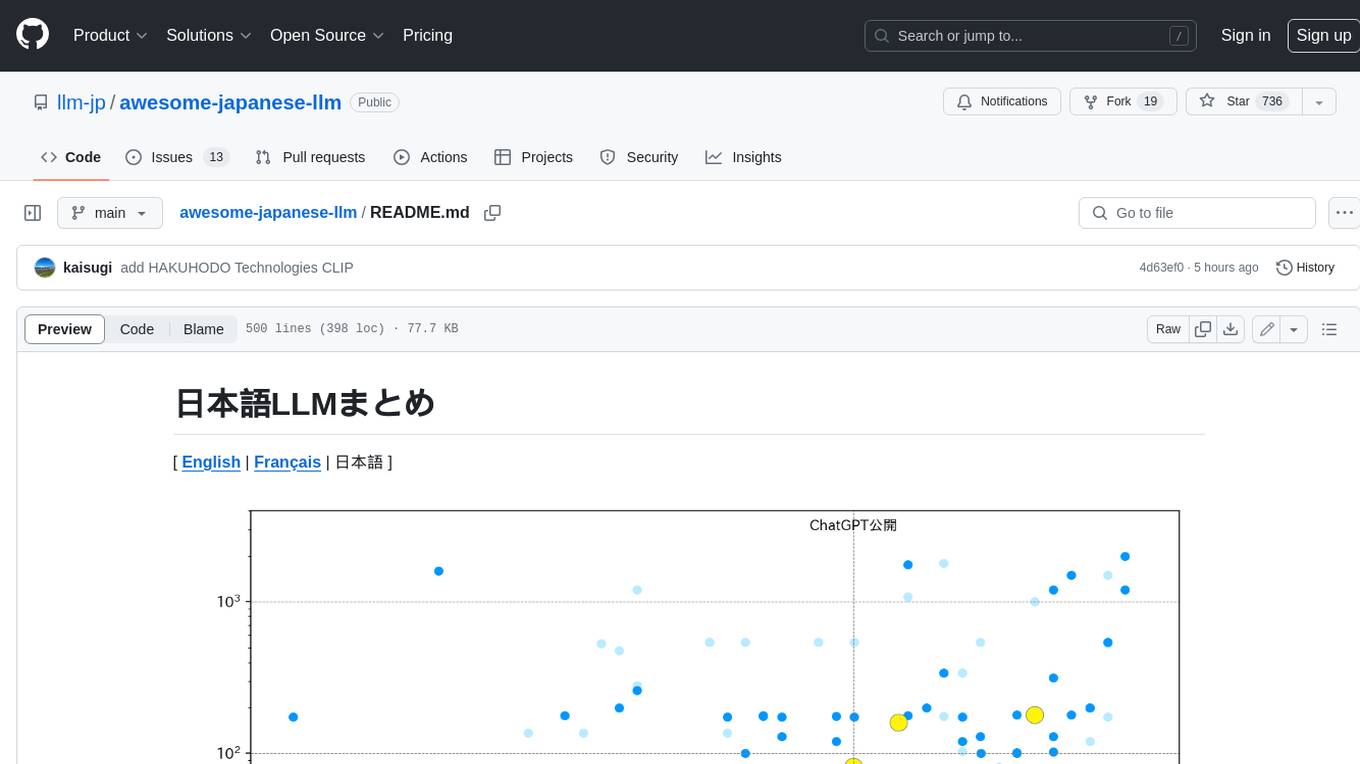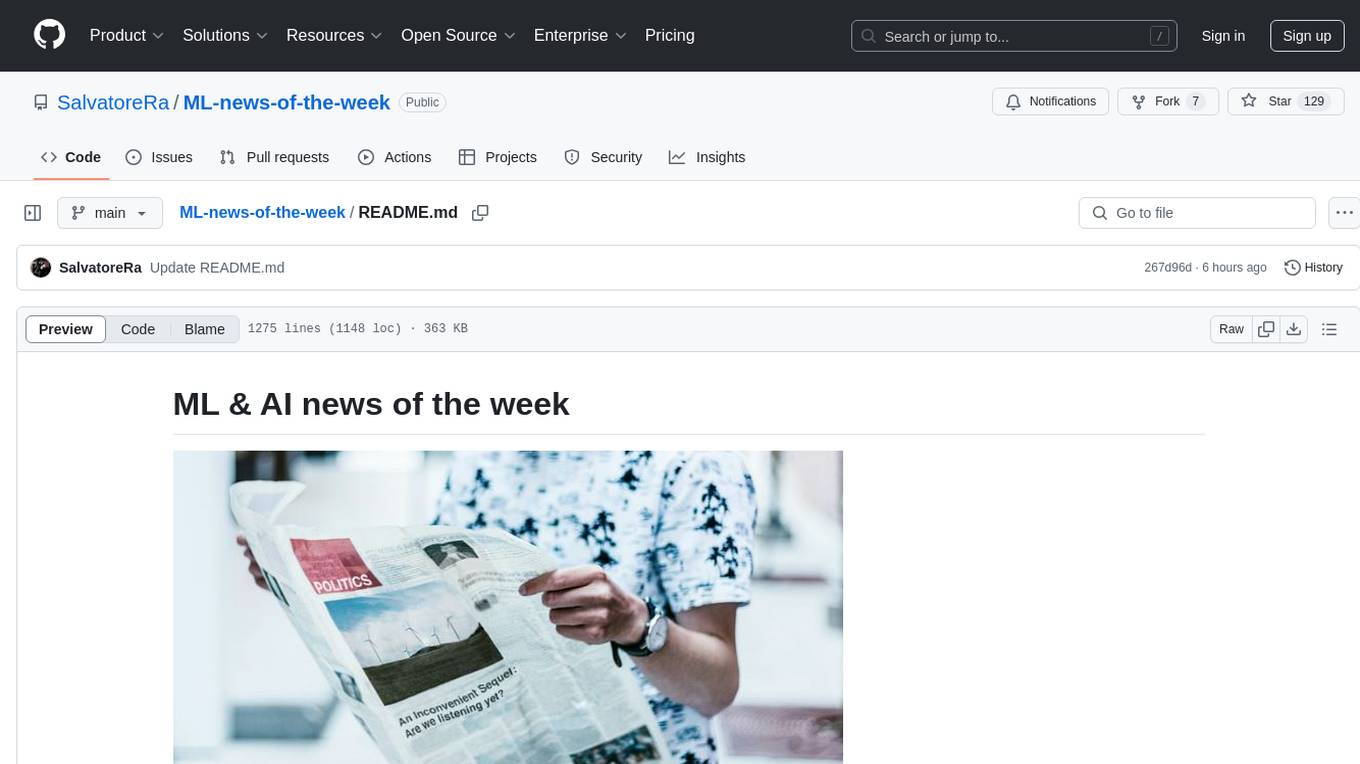AI tools for AIP Community Registry data visualization
Related Tools:

Pralin AI
Pralin AI is an AI application that offers expert-level support and strategic guidance for Palantir implementations. Their services are designed to accelerate projects, reduce risks, and maximize the value of Foundry and AIP investments. With a focus on accelerating project timelines, improving outcomes, and building internal capabilities, Pralin AI provides field-validated data and AI mastery across various industries. Leveraging extensive Palantir experience and a network of industry experts, Pralin AI aims to revolutionize implementations and drive digital transformation for their clients.
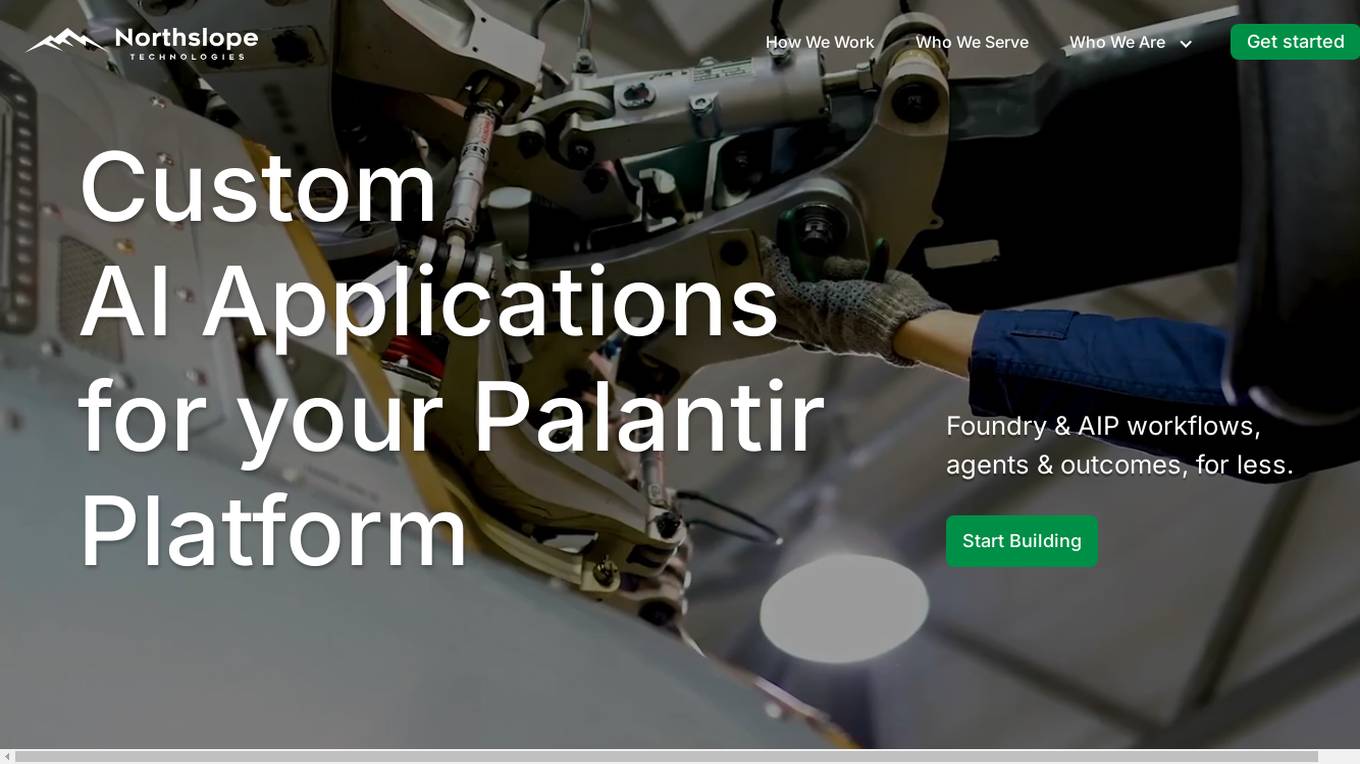
Northslope Technologies
Northslope Technologies is a leading global partner of Palantir, specializing in custom AI applications for the Palantir Platform Foundry & AIP workflows. They offer transformational AI software running natively in Foundry, with a global team headquartered in Denver and London. Northslope works with ambitious organizations to build end-to-end use cases, provide dedicated engineer upskilling, and deliver Palantir-quality solutions at an affordable price point. They pride themselves on deep partnerships, unmatched expertise, and a forward-deployed engineering approach.
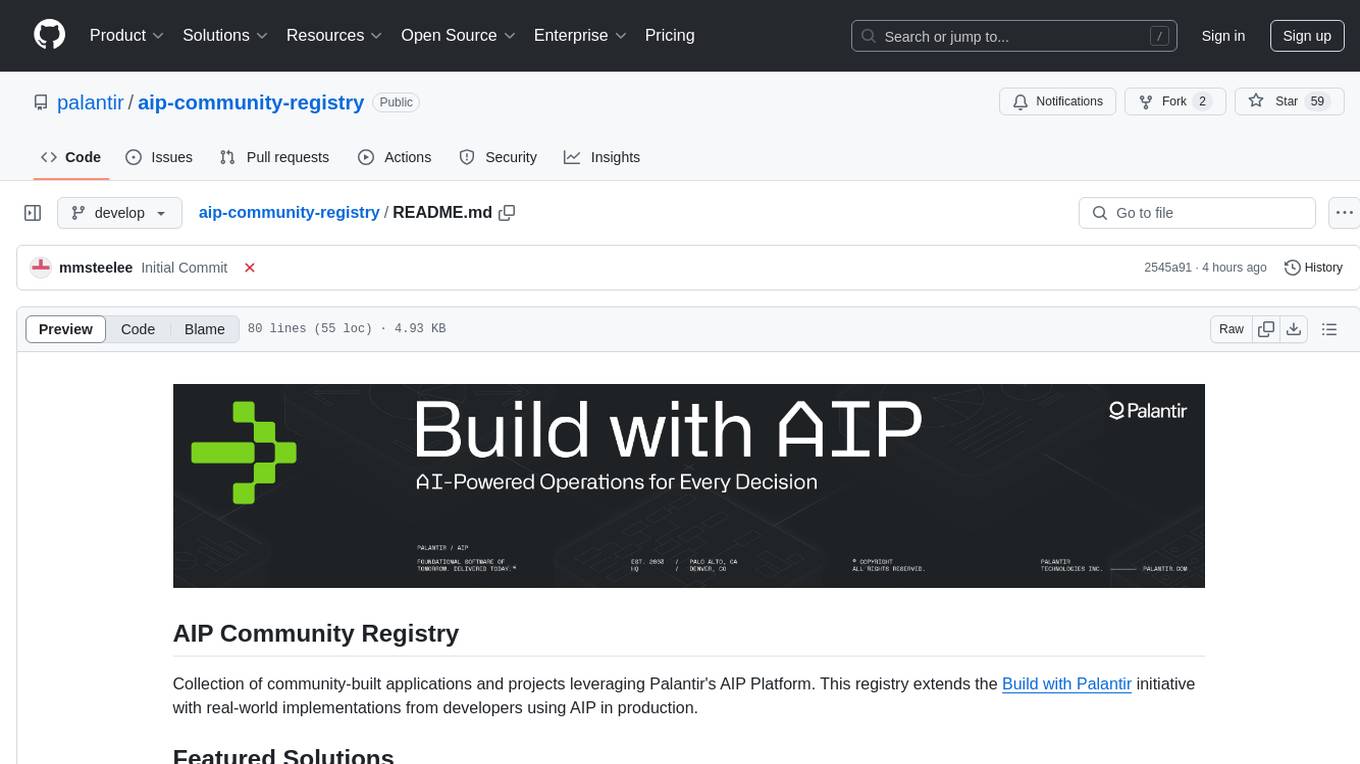
aip-community-registry
AIP Community Registry is a collection of community-built applications and projects leveraging Palantir's AIP Platform. It showcases real-world implementations from developers using AIP in production. The registry features various solutions demonstrating practical implementations and integration patterns across different use cases.
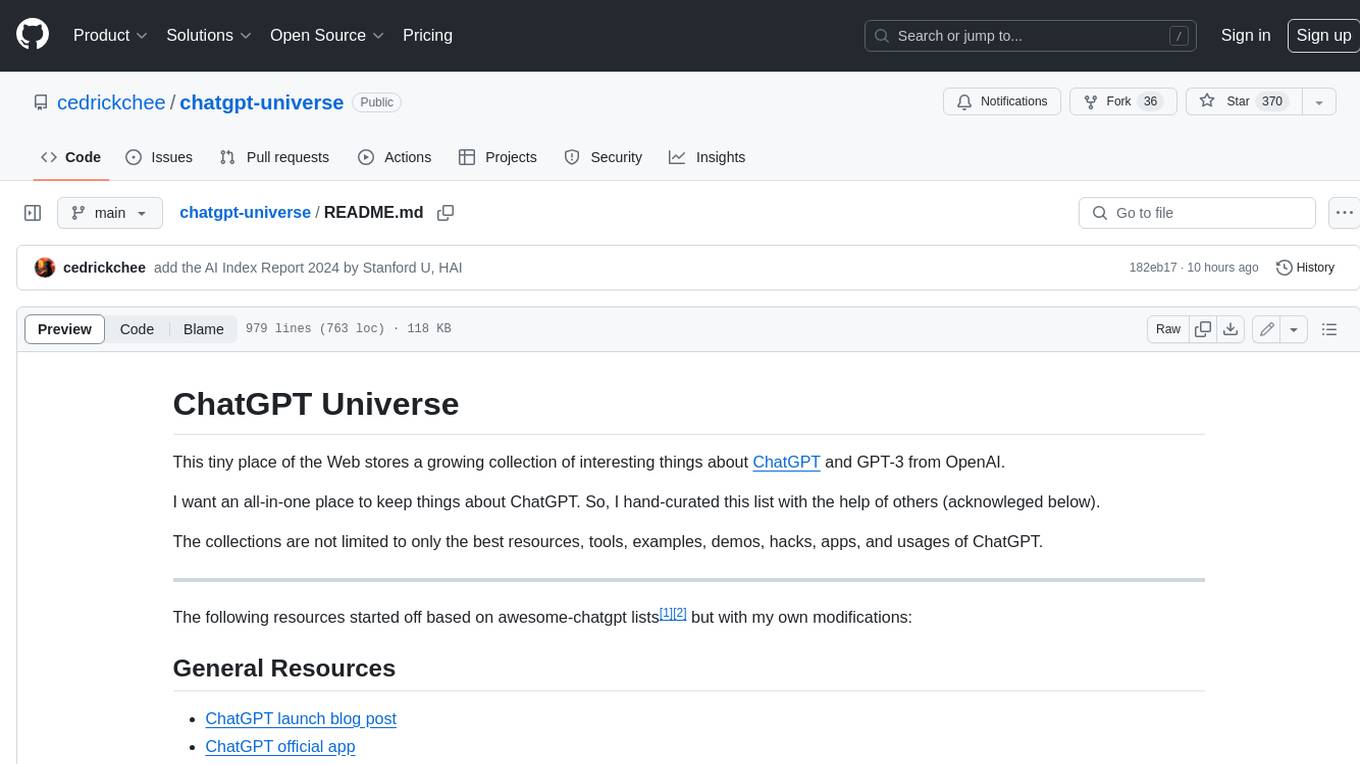
chatgpt-universe
ChatGPT is a large language model that can generate human-like text, translate languages, write different kinds of creative content, and answer your questions in a conversational way. It is trained on a massive amount of text data, and it is able to understand and respond to a wide range of natural language prompts. Here are 5 jobs suitable for this tool, in lowercase letters: 1. content writer 2. chatbot assistant 3. language translator 4. creative writer 5. researcher
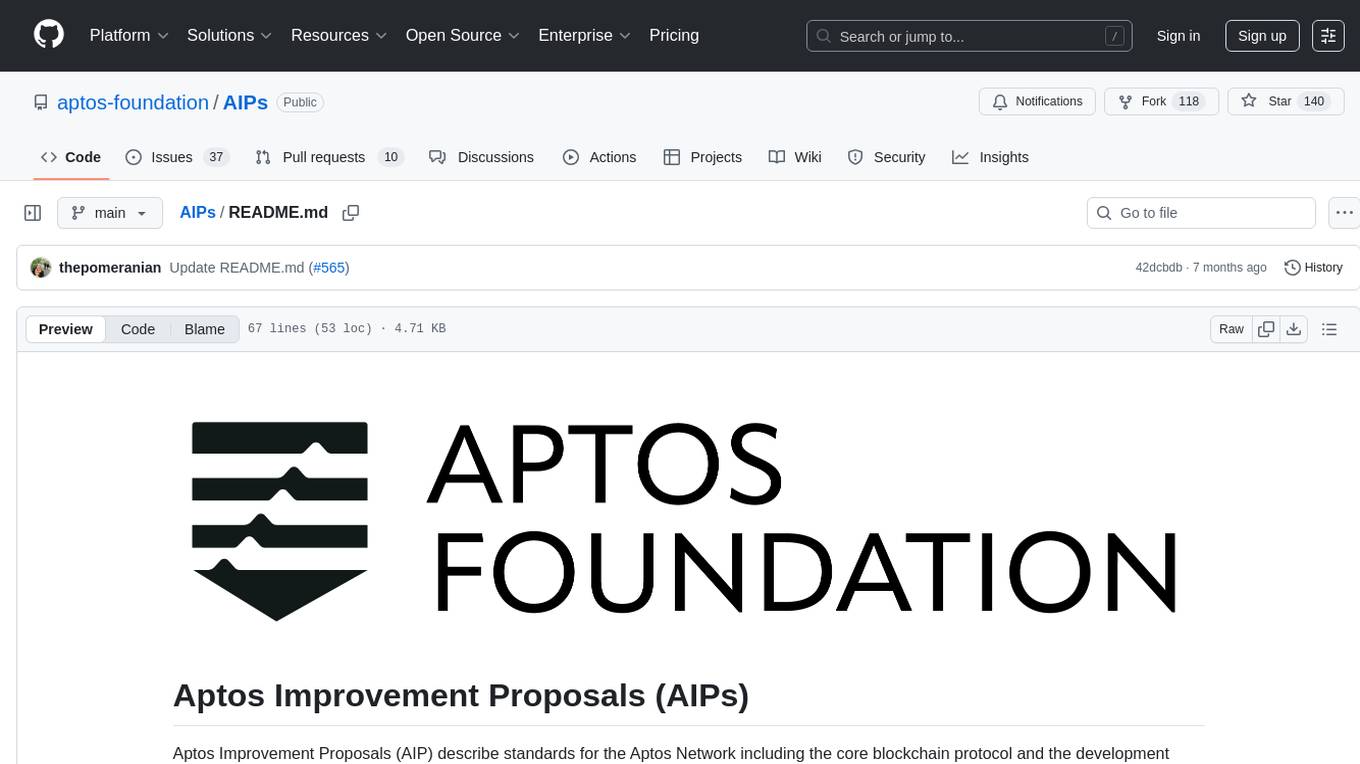
AIPs
Aptos Improvement Proposals (AIP) describe standards for the Aptos Network including the core blockchain protocol and the development platform (Move), smart contracts and systems for smart contract verification, standards for the deployment and operation of the Aptos Network, APIs for accessing the Aptos Network and processing information from the Aptos Network. AIPs are intended to cover changes that impact active services within the Aptos ecosystem. The AIP issue tracker can be used to store exploratory proposals. To submit an AIP, users need to fork the repository, copy the template file, edit the AIP file, commit changes, and submit a pull request. AIPs are categorized as Standard and Informational, with different statuses like Draft, In Review, Ready for Approval, Accepted, Rejected, and On Hold. Users can provide feedback on AIPs by following discussions, evaluating communication clarity, and understanding the impact on the community.
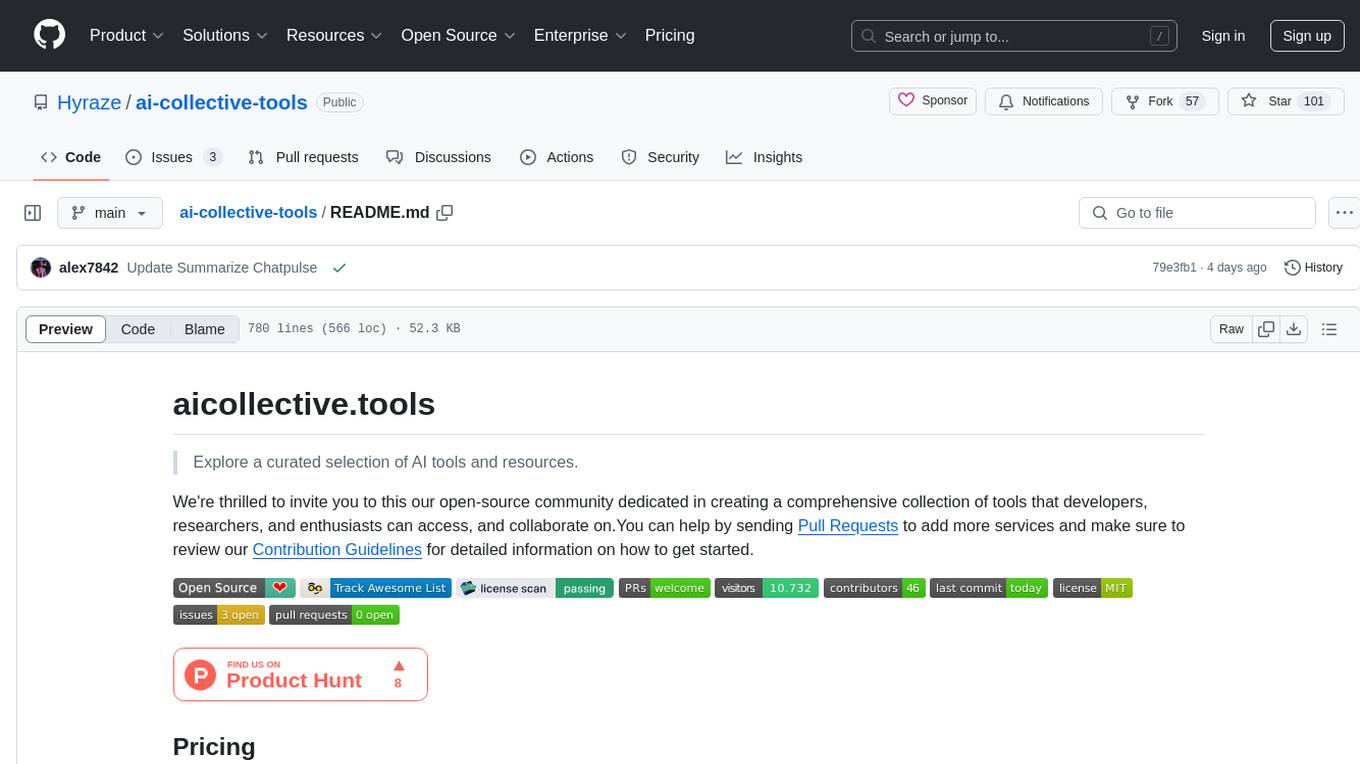
ai-collective-tools
ai-collective-tools is an open-source community dedicated to creating a comprehensive collection of AI tools for developers, researchers, and enthusiasts. The repository provides a curated selection of AI tools and resources across various categories such as 3D, Agriculture, Art, Audio Editing, Avatars, Chatbots, Code Assistant, Cooking, Copywriting, Crypto, Customer Support, Dating, Design Assistant, Design Generator, Developer, E-Commerce, Education, Email Assistant, Experiments, Fashion, Finance, Fitness, Fun Tools, Gaming, General Writing, Gift Ideas, HealthCare, Human Resources, Image Classification, Image Editing, Image Generator, Interior Designing, Legal Assistant, Logo Generator, Low Code, Models, Music, Paraphraser, Personal Assistant, Presentations, Productivity, Prompt Generator, Psychology, Real Estate, Religion, Research, Resume, Sales, Search Engine, SEO, Shopping, Social Media, Spreadsheets, SQL, Startup Tools, Story Teller, Summarizer, Testing, Text to Speech, Text to Image, Transcriber, Travel, Video Editing, Video Generator, Weather, Writing Generator, and Other Resources.
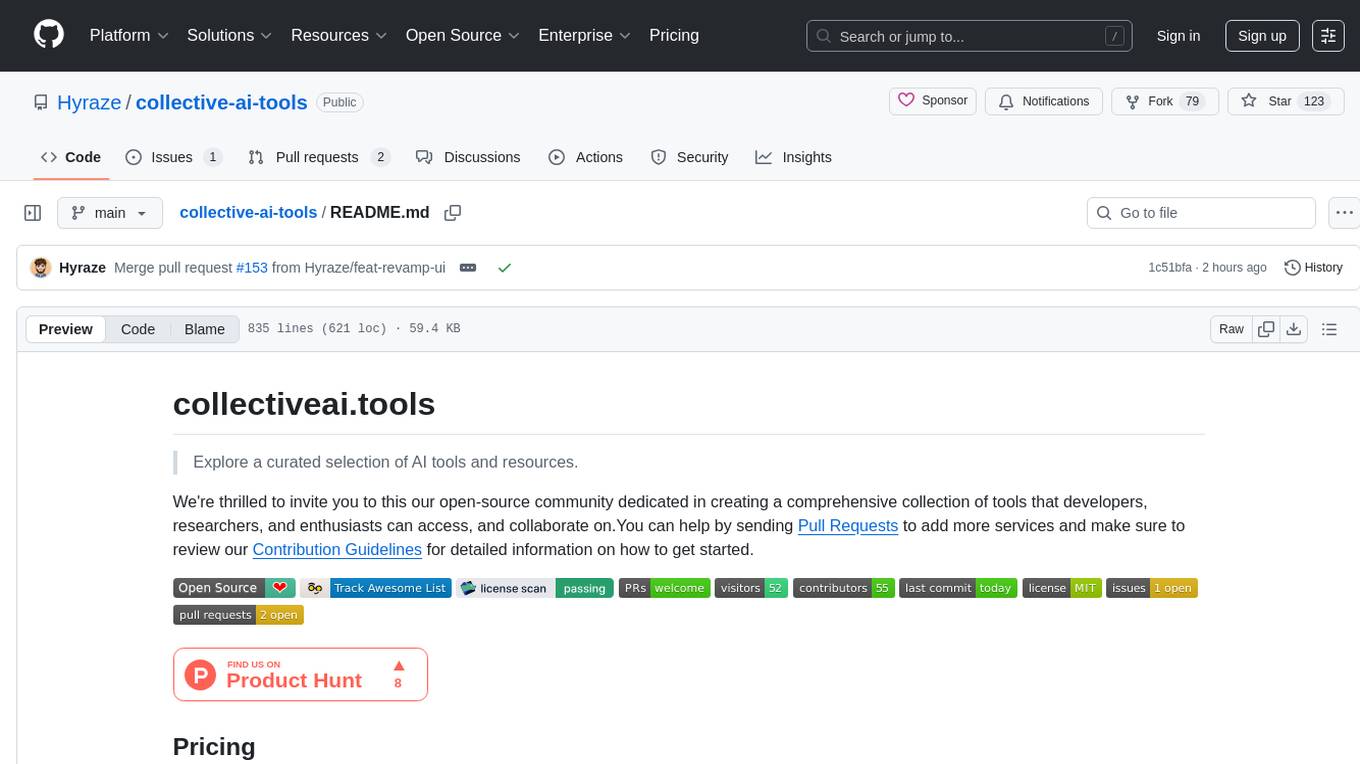
collective-ai-tools
The 'collective-ai-tools' repository is an open-source community dedicated to curating a comprehensive collection of AI tools and resources for developers, researchers, and enthusiasts. The repository provides a curated selection of AI tools across various categories such as 3D modeling, app building, agriculture, art, audio editing, avatars, chatbots, code assistance, cooking, copywriting, crypto, customer support, dating, design assistance, design generation, developer tools, e-commerce, education, email assistance, experiments, fashion, finance, fitness, fun tools, gaming, general writing, gift ideas, healthcare, human resources, image classification, image editing, image generation, interior designing, legal assistance, logo generation, low code development, models, music, paraphrasing, personal assistance, presentations, productivity tools, prompt generation, psychology, real estate, religion, research, resume building, sales, search engine, SEO, shopping, social media, spreadsheets, SQL, startup tools, storytelling, summarization, testing, text-to-speech, text-to-image, transcription, travel, video editing, video generation, writing generation, weather, and other resources.
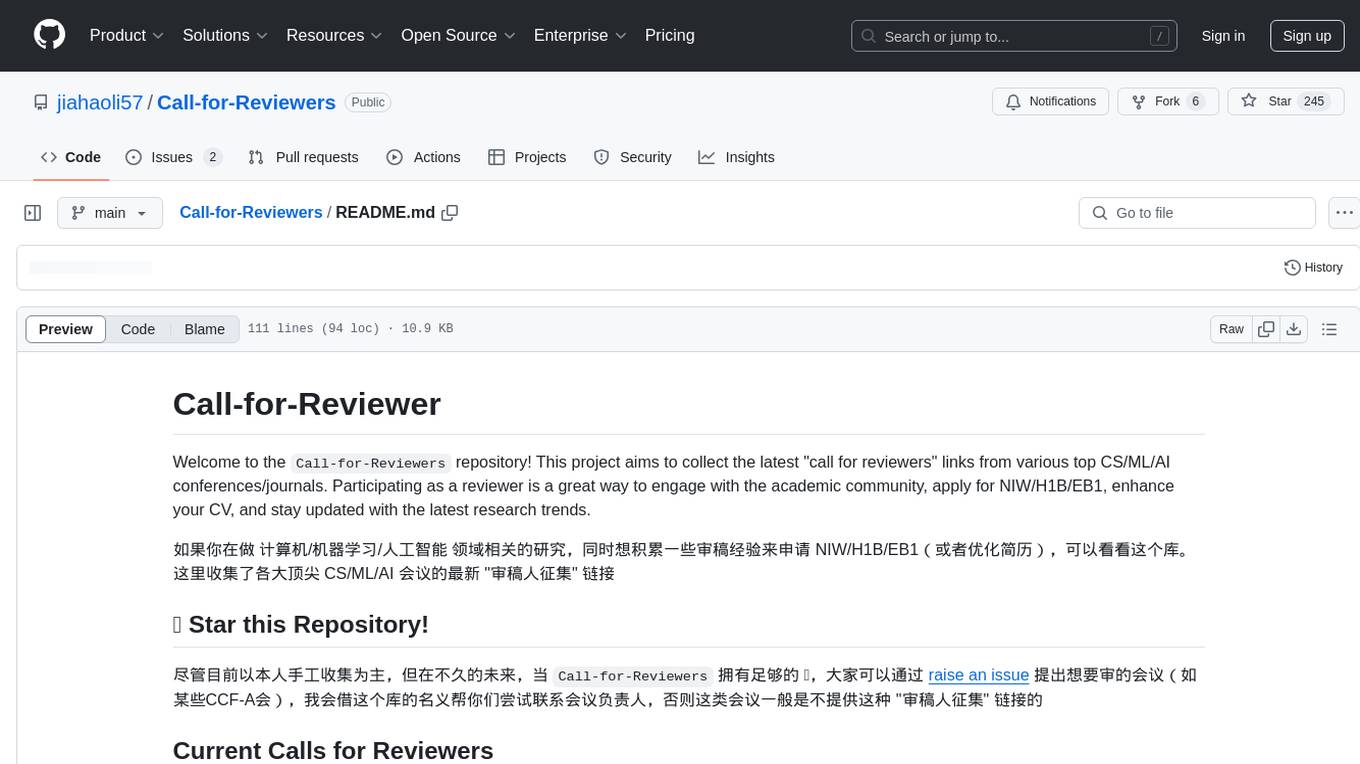
Call-for-Reviewers
The `Call-for-Reviewers` repository aims to collect the latest 'call for reviewers' links from various top CS/ML/AI conferences/journals. It provides an opportunity for individuals in the computer/ machine learning/ artificial intelligence fields to gain review experience for applying for NIW/H1B/EB1 or enhancing their CV. The repository helps users stay updated with the latest research trends and engage with the academic community.
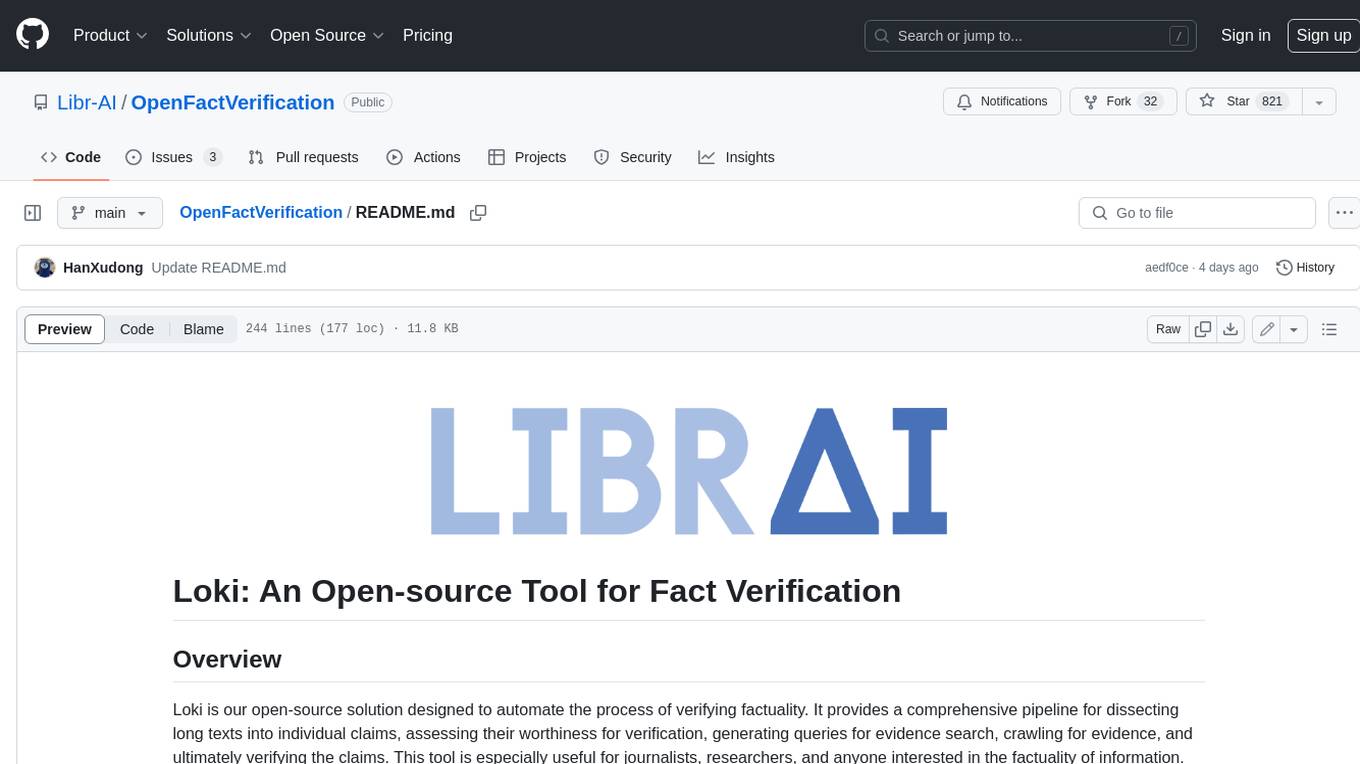
OpenFactVerification
Loki is an open-source tool designed to automate the process of verifying the factuality of information. It provides a comprehensive pipeline for dissecting long texts into individual claims, assessing their worthiness for verification, generating queries for evidence search, crawling for evidence, and ultimately verifying the claims. This tool is especially useful for journalists, researchers, and anyone interested in the factuality of information.

airflow
Apache Airflow (or simply Airflow) is a platform to programmatically author, schedule, and monitor workflows. When workflows are defined as code, they become more maintainable, versionable, testable, and collaborative. Use Airflow to author workflows as directed acyclic graphs (DAGs) of tasks. The Airflow scheduler executes your tasks on an array of workers while following the specified dependencies. Rich command line utilities make performing complex surgeries on DAGs a snap. The rich user interface makes it easy to visualize pipelines running in production, monitor progress, and troubleshoot issues when needed.

llms-tools
The 'llms-tools' repository is a comprehensive collection of AI tools, open-source projects, and research related to Large Language Models (LLMs) and Chatbots. It covers a wide range of topics such as AI in various domains, open-source models, chats & assistants, visual language models, evaluation tools, libraries, devices, income models, text-to-image, computer vision, audio & speech, code & math, games, robotics, typography, bio & med, military, climate, finance, and presentation. The repository provides valuable resources for researchers, developers, and enthusiasts interested in exploring the capabilities of LLMs and related technologies.
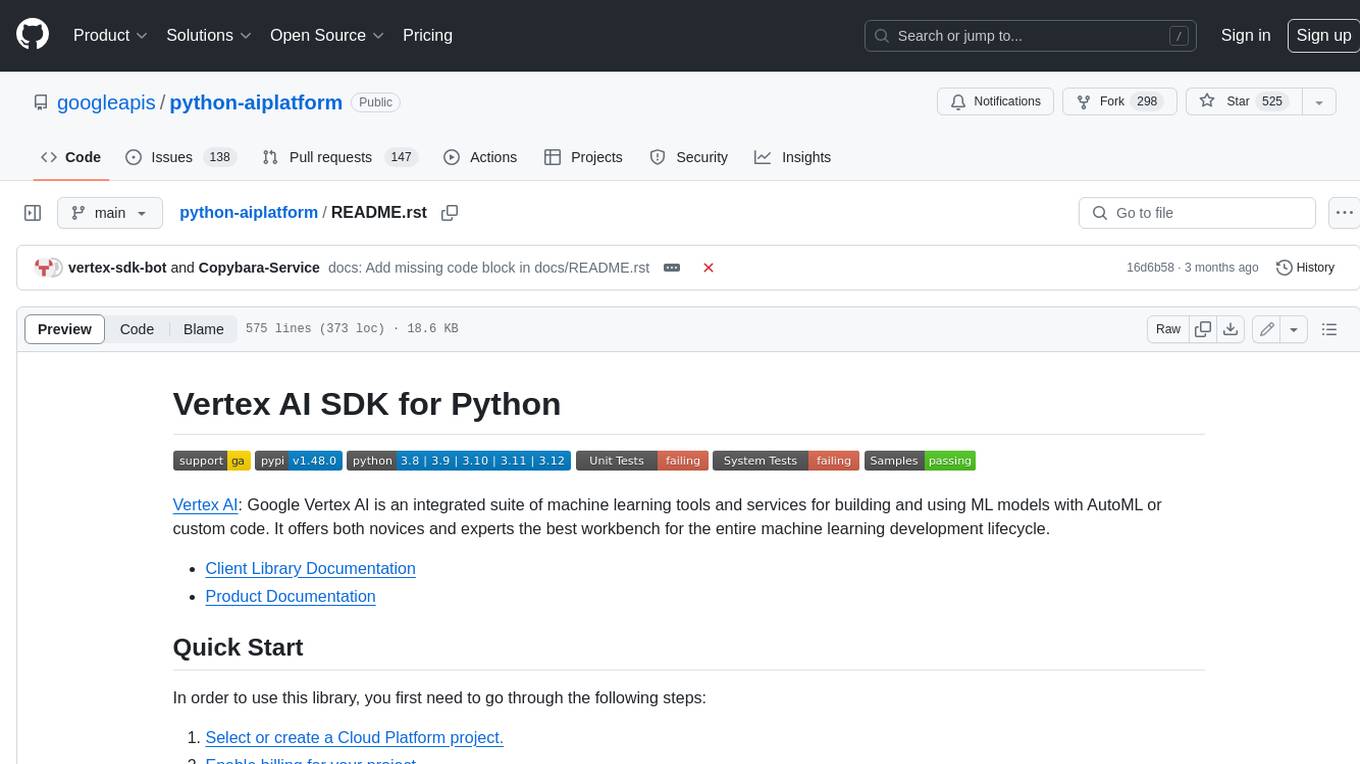
python-aiplatform
The Vertex AI SDK for Python is a library that provides a convenient way to use the Vertex AI API. It offers a high-level interface for creating and managing Vertex AI resources, such as datasets, models, and endpoints. The SDK also provides support for training and deploying custom models, as well as using AutoML models. With the Vertex AI SDK for Python, you can quickly and easily build and deploy machine learning models on Vertex AI.
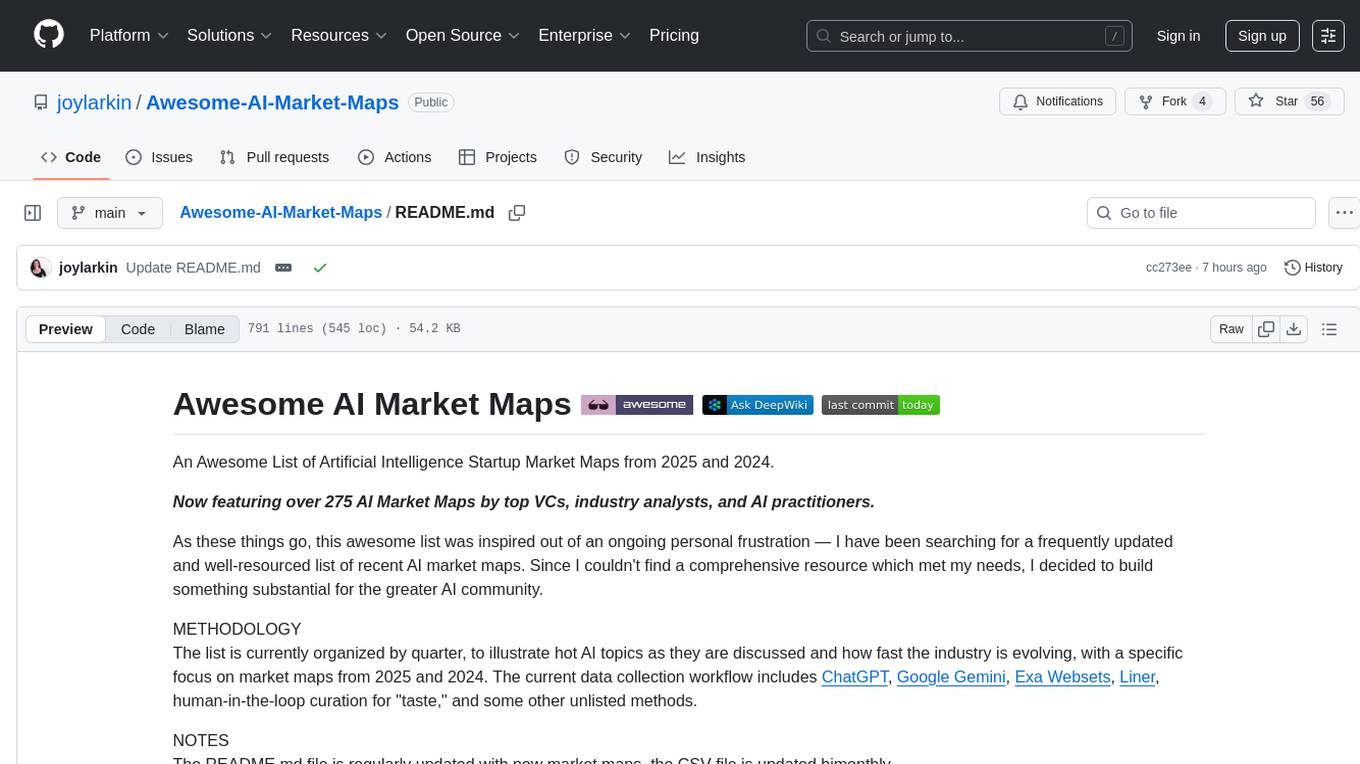
Awesome-AI-Market-Maps
Awesome AI Market Maps is a curated list of Artificial Intelligence startup market maps from 2025 and 2024, featuring over 275 market maps by top VCs, industry analysts, and AI practitioners. The list is organized by quarter, showcasing hot AI topics and the industry's rapid evolution. The data collection workflow includes various tools like ChatGPT, Google Gemini, and human-in-the-loop curation. The repository is regularly updated with new market maps, providing a comprehensive resource for the AI community.
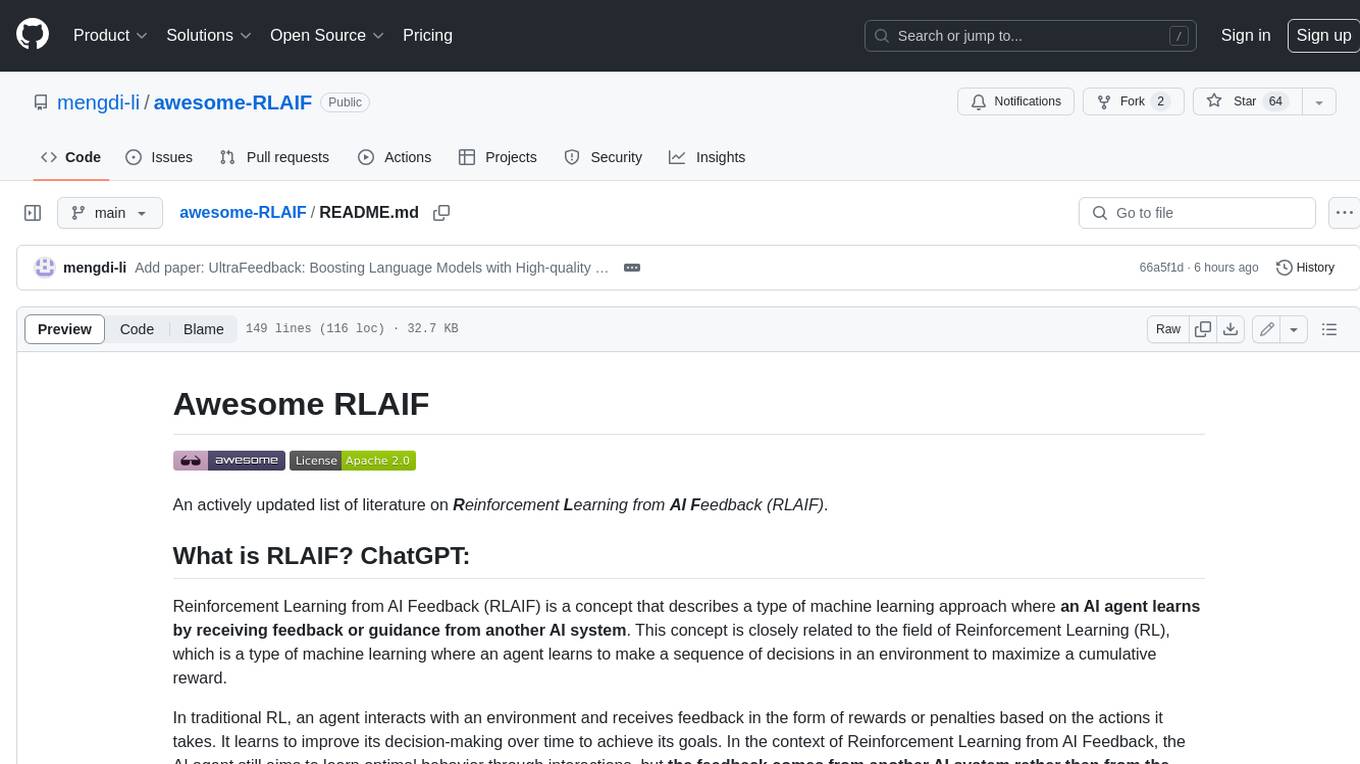
awesome-RLAIF
Reinforcement Learning from AI Feedback (RLAIF) is a concept that describes a type of machine learning approach where **an AI agent learns by receiving feedback or guidance from another AI system**. This concept is closely related to the field of Reinforcement Learning (RL), which is a type of machine learning where an agent learns to make a sequence of decisions in an environment to maximize a cumulative reward. In traditional RL, an agent interacts with an environment and receives feedback in the form of rewards or penalties based on the actions it takes. It learns to improve its decision-making over time to achieve its goals. In the context of Reinforcement Learning from AI Feedback, the AI agent still aims to learn optimal behavior through interactions, but **the feedback comes from another AI system rather than from the environment or human evaluators**. This can be **particularly useful in situations where it may be challenging to define clear reward functions or when it is more efficient to use another AI system to provide guidance**. The feedback from the AI system can take various forms, such as: - **Demonstrations** : The AI system provides demonstrations of desired behavior, and the learning agent tries to imitate these demonstrations. - **Comparison Data** : The AI system ranks or compares different actions taken by the learning agent, helping it to understand which actions are better or worse. - **Reward Shaping** : The AI system provides additional reward signals to guide the learning agent's behavior, supplementing the rewards from the environment. This approach is often used in scenarios where the RL agent needs to learn from **limited human or expert feedback or when the reward signal from the environment is sparse or unclear**. It can also be used to **accelerate the learning process and make RL more sample-efficient**. Reinforcement Learning from AI Feedback is an area of ongoing research and has applications in various domains, including robotics, autonomous vehicles, and game playing, among others.
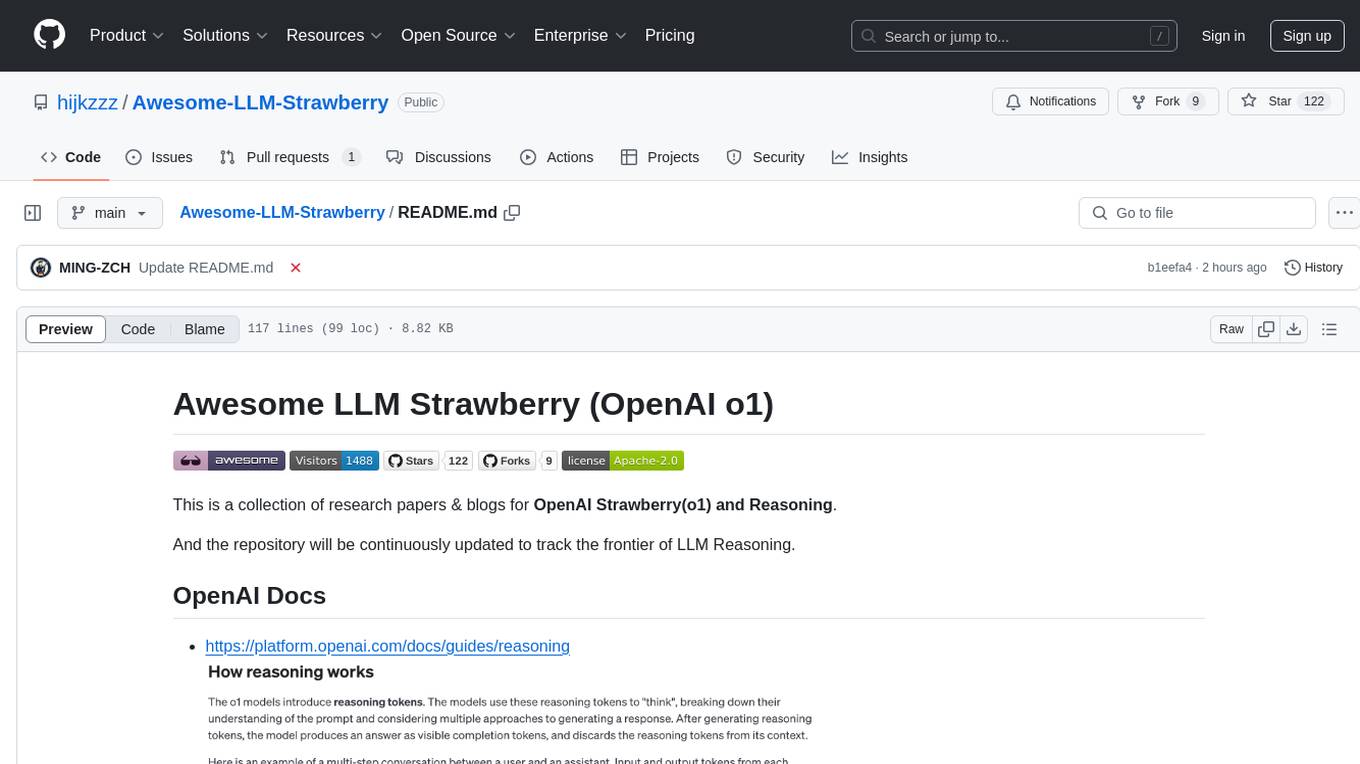
Awesome-LLM-Strawberry
Awesome LLM Strawberry is a collection of research papers and blogs related to OpenAI Strawberry(o1) and Reasoning. The repository is continuously updated to track the frontier of LLM Reasoning.
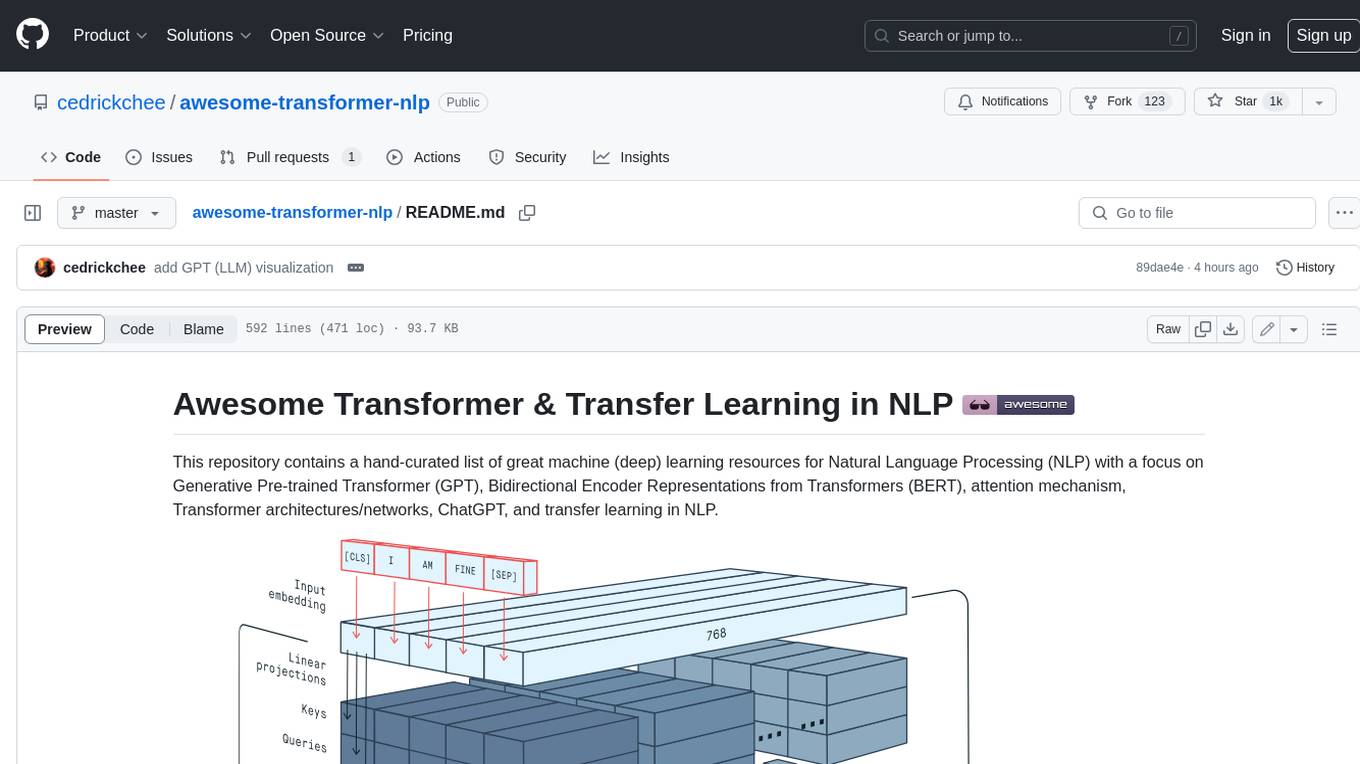
awesome-transformer-nlp
This repository contains a hand-curated list of great machine (deep) learning resources for Natural Language Processing (NLP) with a focus on Generative Pre-trained Transformer (GPT), Bidirectional Encoder Representations from Transformers (BERT), attention mechanism, Transformer architectures/networks, Chatbot, and transfer learning in NLP.
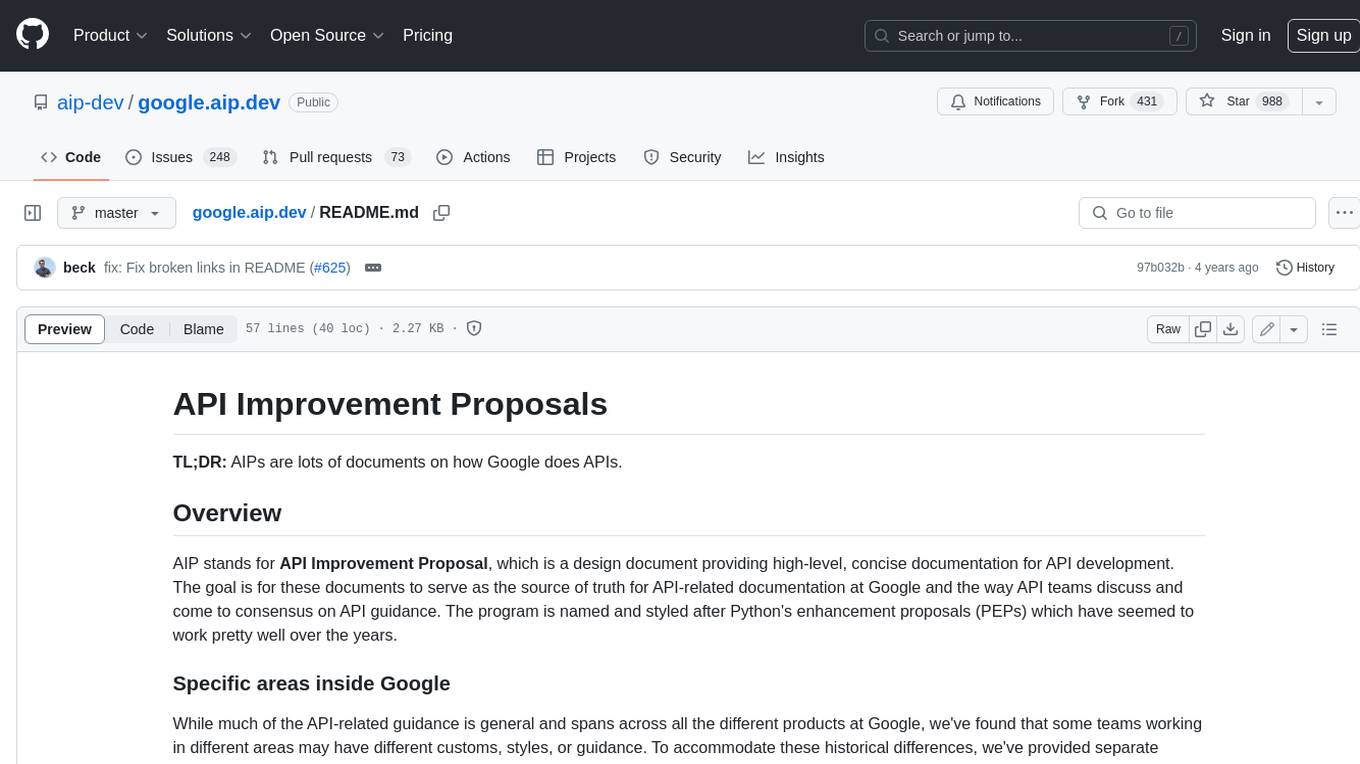
google.aip.dev
API Improvement Proposals (AIPs) are design documents that provide high-level, concise documentation for API development at Google. The goal of AIPs is to serve as the source of truth for API-related documentation and to facilitate discussion and consensus among API teams. AIPs are similar to Python's enhancement proposals (PEPs) and are organized into different areas within Google to accommodate historical differences in customs, styles, and guidance.
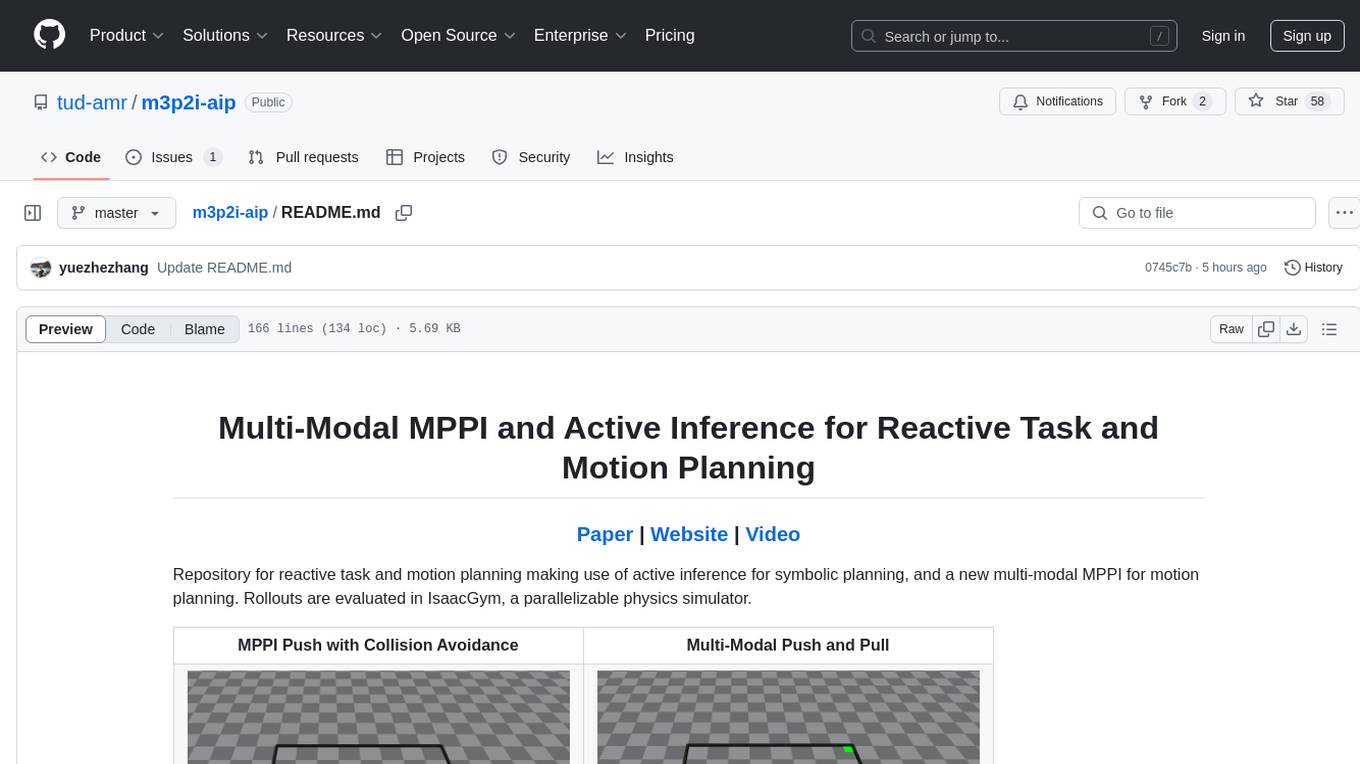
m3p2i-aip
Repository for reactive task and motion planning using active inference for symbolic planning and multi-modal MPPI for motion planning. Rollouts are evaluated in IsaacGym, a parallelizable physics simulator. The tool provides functionalities for push, pull, pick, and multi-modal push-pull tasks with collision avoidance.
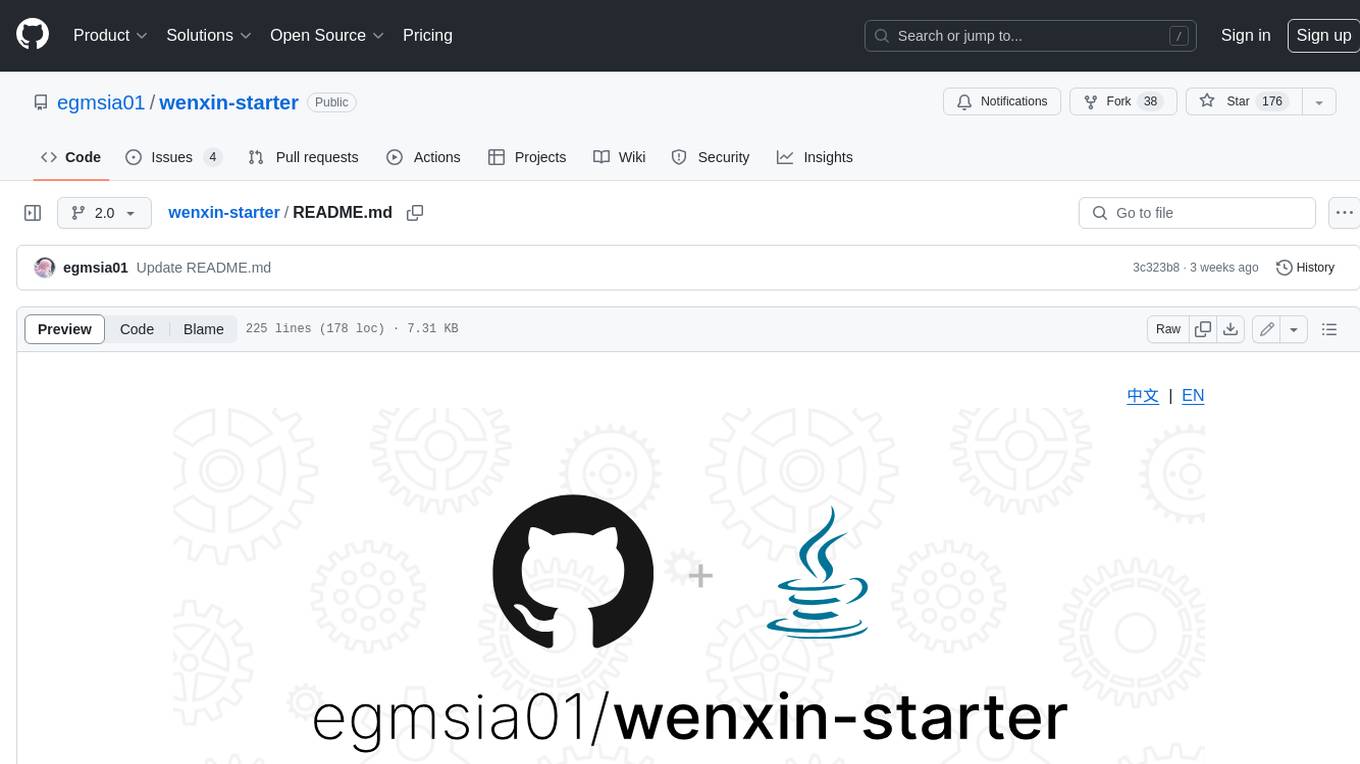
wenxin-starter
WenXin-Starter is a spring-boot-starter for Baidu's "Wenxin Qianfan WENXINWORKSHOP" large model, which can help you quickly access Baidu's AI capabilities. It fully integrates the official API documentation of Wenxin Qianfan. Supports text-to-image generation, built-in dialogue memory, and supports streaming return of dialogue. Supports QPS control of a single model and supports queuing mechanism. Plugins will be added soon.

